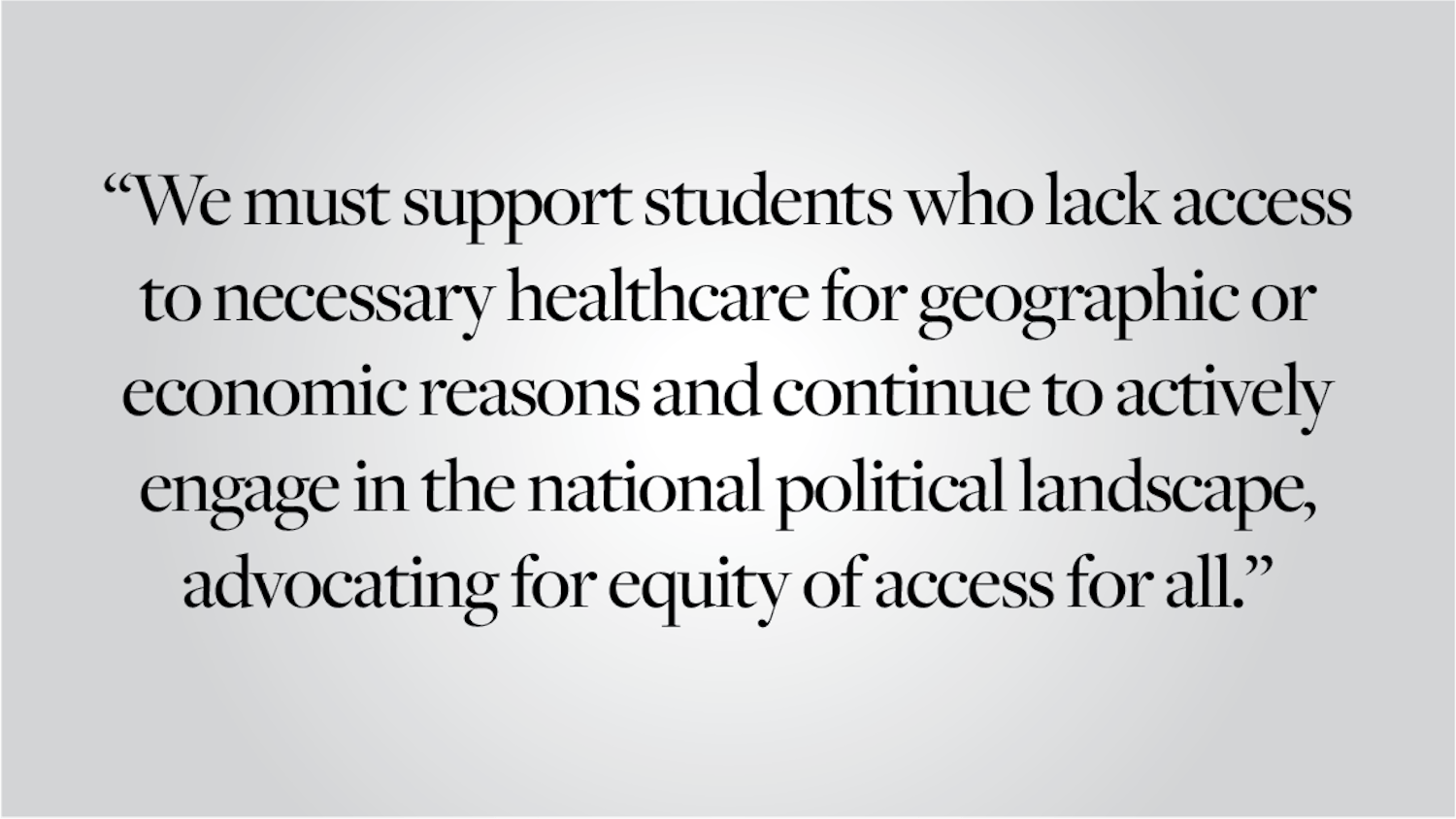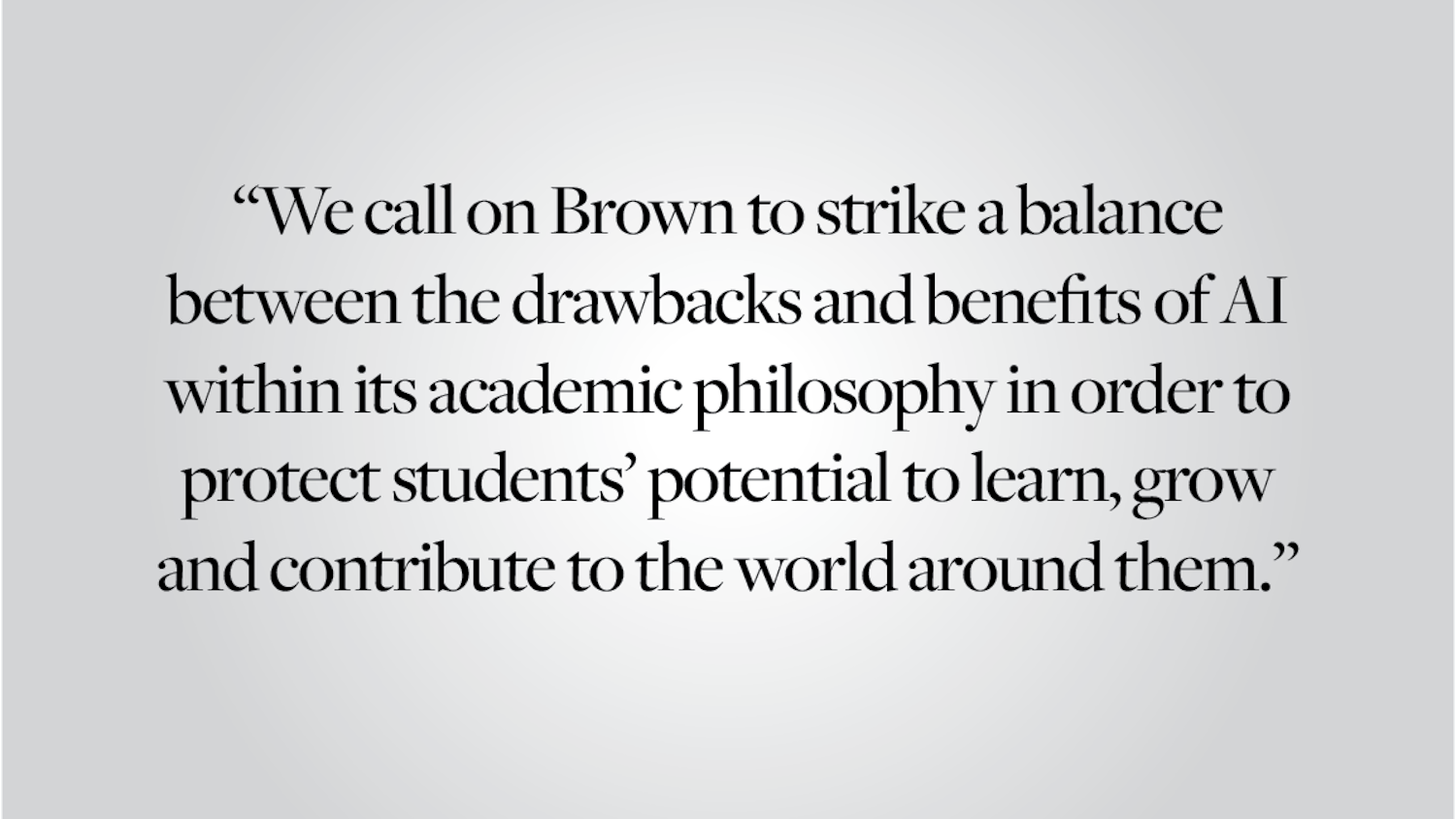As technology becomes ever more omnipresent in the modern age, universities have begun experimenting with digital strategies to expedite and accelerate their students’ learning. The most notable example is the Massachusetts Institute of Technology’s OpenCourseWare, which, according to its website, digitizes and makes public “virtually all MIT course content.” This past year, Brown has also taken steps to explore the potential of online programs, utilizing Coursera and Canvas to offer or supplement its courses. In addition to Massive Open Online Courses — MOOCs — that were offered over the summer, professors have begun to integrate additional virtual components, such as online videos to supplement lecture material, into classes this fall. While it is important for Brown to explore these and other options, we must be wary of how much influence we give to computers as an instrument of education and remain mindful of the limits of technology.
There is much that can be gained from courses that either employ a fully online model or a hybridized version of live classroom and digital presentation. MOOCs offer a chance for students to learn from not just one given institution, but also from many schools around the world. MOOCs let students learn at their own pace. Students can rewatch lectures online or access online resources to reinforce difficult concepts. Virtual classrooms also have the potential to facilitate student discussion, since social inhibitions that can stifle in-person conversation are diminished in online forums. Many find it easier to express their views from behind the safety of a computer screen.
But avoiding the classroom environment also limits face-to-face interactions between professors and peers, an invaluable aspect of college that is a requisite for later success in life. Students should not miss out on the chance to truly get to know their professors through the learning process. The online model may allow for more — more ideas, more openness, more people with whom to engage — but removing the ever-important human element has the potential to stunt social growth.
Regardless of these concerns, it would seem that the advent of digital education is upon us, whether we like it or not. But if we are going to incorporate online platforms into higher education, we need to do it right — and it is necessary to recognize what computers are both capable and incapable of.
Frank Levy, an economist at MIT who has done extensive research on the influence of technology, writes in his paper “Dancing With Robots” that while human work “involves the cognitive processing of information,” computers merely carry out predetermined rules. Levy delineates the respective strengths of the human and digital cognitions: computers are far superior in terms of speed and accuracy, but the human mind’s asset is its flexibility. As this applies to education, it is apparent that computers would be best suited to complete simple functions like grading quizzes or teaching basic facts quickly and efficiently. But instruction that requires nuance or flexibility can’t be digitized — it requires human effort.
Thus, we should be cautiously optimistic about online learning. It has the potential to facilitate simple tasks, allowing teachers to devote more time to discussion and communication with individual students. But there are some aspects of the educational process that simply cannot be performed by anything but a human, and trying to place a computer in these roles would lead to disastrous results. Learning is more than the rote intake of information — it requires interaction among students and instructors to allow for cognitive and intellectual growth.
Editorials are written by The Herald’s editorial page board: its editor, Rachel Occhiogrosso, and its members, Daniel Jeon, Hannah Loewentheil and Thomas Nath. Send comments to editorials@browndailyherald.com.
ADVERTISEMENT




